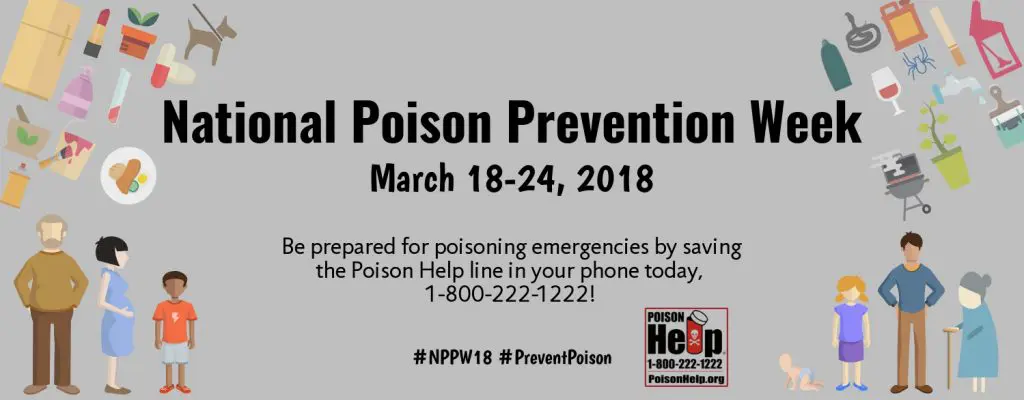During National Poison Prevention Week (March 18-24, 2018), Dr. Atakem and the staff at Liberty Animal Hospital want to be sure you are aware that your pets are in just as much danger from poisons as your kids…and maybe more. After all, you can’t sit your pet down and have a discussion about why laundry detergent pods are dangerous. And they may look like they’re paying attention when you shoo them off the kitchen counter, but you know darn well they’re right back up there as soon as your back is turned.
Here are some common household pet poisons you need to be aware of, as well as some important safety tips.
Common Household Pet Poisons
The following are the most common and dangerous household items that can poison your pet:
- Foods – Most pet owners know that chocolate, onions, grapes, and raw bones are no good. But did you know that coconut water can also be dangerous for your pet? This resource from the American Society for the Prevention of Cruelty to Animals (ASPCA) lists common and not-so-common foods for pets to avoid.
- Medicines and cleaning products – Store all medicines and all dietary supplements (for you and your pet) where your pet can’t reach them. A dog that wants to get what’s inside a closed medicine bottle will find a way if that bottle is accessible. If you drop a pill, pick it up immediately so your pet can’t get it. Labels on cleaning products provide instructions for their safe storage to protect children and pets. If possible, store these items in a locked cupboard or in an area that’s off-limits to your pets. Review this list from the ASPCA for which of these substances are dangerous and why.
- Pest poisons, garden products, and garage chemicals — Poisons meant to kill rodents, insects, or weeds are very common causes of poisoning in pets. Keep your pet out of areas treated with toxic products. Any chemical in your garage can be dangerous to pets. Antifreeze, in particular, can be deadly. Store all chemicals out of reach of your pet (just as you would for children), and carefully mop up any spills.
- Plants – Any plant has the potential to cause vomiting and gastrointestinal upset for dogs and cats. For a comprehensive list of plants and their poison potential, see this list from the ASPCA.
Other Important Pet Poison Safety Tips (Good for Humans, Too!)
The American Association of Poison Control Centers offers this advice:
- Be prepared for an emergency. Keep the national, free Poison Helpline number at your fingertips by saving the number in your mobile phone: 1-800-222-1222
- Practice safe storage habits. Always store medicines and hazardous substances up, away, and out of sight of children. Keep these substances in their original, child resistant containers.
- Read and follow all labels and directions. Review medicine and product labels before you use them, especially before giving medicine to children.
- Detect invisible threats. Have a working carbon monoxide detector in your home
#nppw18 #preventpoison


Recent Comments